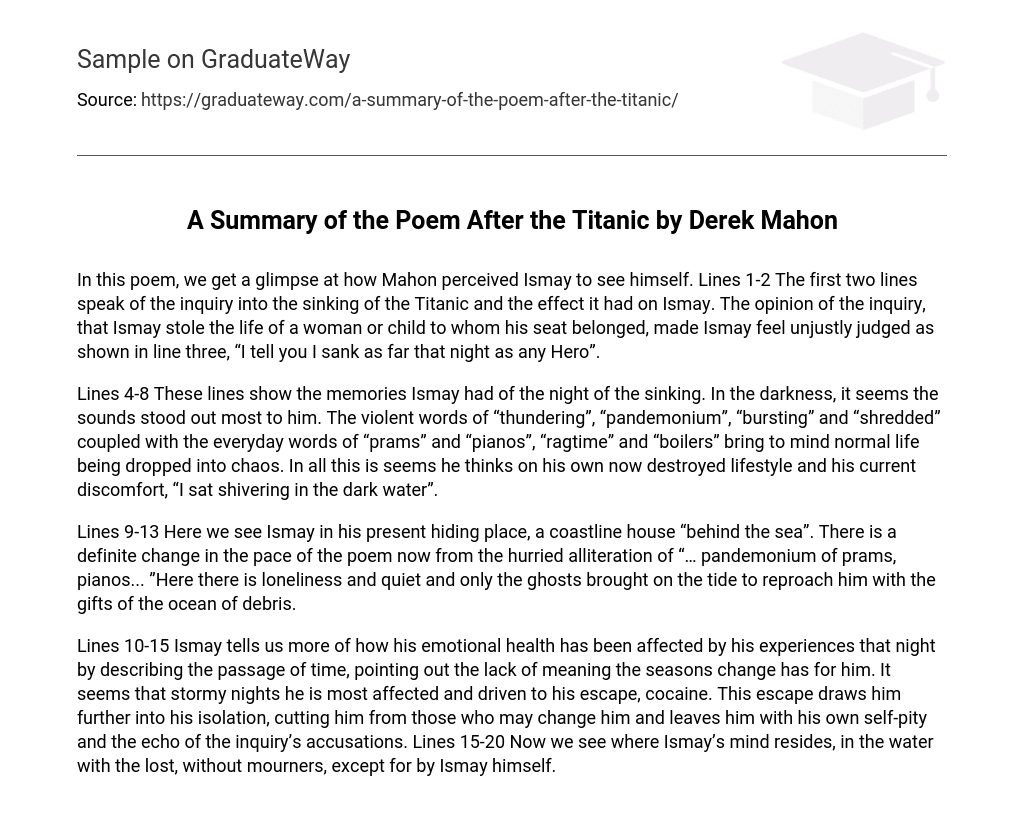In this poem, we get a glimpse at how Mahon perceived Ismay to see himself. Lines 1-2 The first two lines speak of the inquiry into the sinking of the Titanic and the effect it had on Ismay. The opinion of the inquiry, that Ismay stole the life of a woman or child to whom his seat belonged, made Ismay feel unjustly judged as shown in line three, “I tell you I sank as far that night as any Hero”.
Lines 4-8 These lines show the memories Ismay had of the night of the sinking. In the darkness, it seems the sounds stood out most to him. The violent words of “thundering”, “pandemonium”, “bursting” and “shredded” coupled with the everyday words of “prams” and “pianos”, “ragtime” and “boilers” bring to mind normal life being dropped into chaos. In all this is seems he thinks on his own now destroyed lifestyle and his current discomfort, “I sat shivering in the dark water”.
Lines 9-13 Here we see Ismay in his present hiding place, a coastline house “behind the sea”. There is a definite change in the pace of the poem now from the hurried alliteration of “… pandemonium of prams, pianos… ”Here there is loneliness and quiet and only the ghosts brought on the tide to reproach him with the gifts of the ocean of debris.
Lines 10-15 Ismay tells us more of how his emotional health has been affected by his experiences that night by describing the passage of time, pointing out the lack of meaning the seasons change has for him. It seems that stormy nights he is most affected and driven to his escape, cocaine. This escape draws him further into his isolation, cutting him from those who may change him and leaves him with his own self-pity and the echo of the inquiry’s accusations. Lines 15-20 Now we see where Ismay’s mind resides, in the water with the lost, without mourners, except for by Ismay himself.





